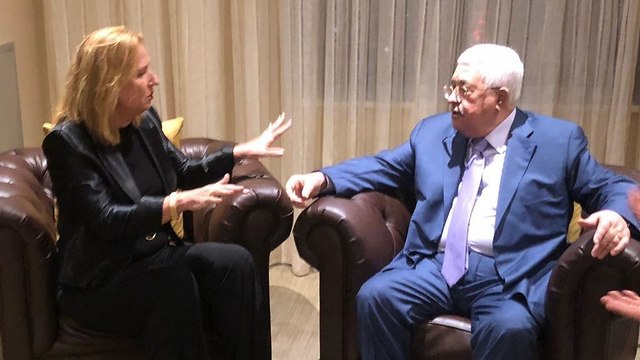
She was the last woman standing. And on Monday, in front of the cameras, at a public press conference, Tzipi Livni bade farewell to Israeli politics. There was nothing embarrassing, unpleasant, or uninspiring in the tears she shed as she did so. Greater politicians have done it, and some more than once, among them Hillary Clinton and Barack Obama. For is it not better for a politician to let their feelings overwhelm them than to never show any emotion at all, even when they have more than enough reason to do so?
You do not have to be a left-winger to respect what Livni did. And if Israeli politics had not become so mired in the dirt (in which calling someone a leftist is the worst of all insults) it is possible that the right would also have good things to say about this direct, faithful politician who has walked among them for 20 years. Perhaps they could have given an honorable send-off to someone who only a decade ago was within hand's reach of the prime minister's seat, who led the most important ministries, and who swam the stormy diplomatic seas like a fish.
But it is no longer possible to expect any decency or basic collegiality from people who use what was until recently a perfectly respectable term to denigrate anyone who disagrees with them, be it the president, the police chief or the attorney general. But it is not only politics that has veered far from what it once was.
Expressions such as "the peace process", "two states for two peoples", "political negotiations" and "a Jewish and democratic state" have all disappeared from Israel's national lexicon, and hearts have hardened against those who still believe there is a path to peace, or even a partner.
Even Livni's attempts to touch the voters' hearts – which were less the actions of someone who believes that there is a partner for peace than they were of someone who cares about the character of the state - did not succeed. Livni is not a woman of simple slogans or catchy messages.
To understand Livni, you have to invest more than a second or two of your time, and who has patience for that these days? It is much simpler to brand person a leftist than to try to understand their motives and beliefs.
Livni tried for long months to bring unity to the center-left bloc, and finally found herself unwanted by those very parties in which she could have found a political home. Neither Yair Lapid nor Benny Gantz (and certainly not Avi Gabbay) found a place for her on their lists, even though in some circles she would have been seen as an asset.

There have already been cases in which the whole is larger than the sum of its parts, and the leader of a party that does not pass the electoral threshold, such as Moshe Ya'alon, can add strength to a party, like Gantz's Israel Resilience.
This is exactly why Gantz is trying to bring Orly Levy-Abeksis into the fold, for while her Gesher party does not have a realistic chance of entering the Knesset alone, it could well give momentum to Gantz's somewhat plodding party.
But Livni understood that no party wanted her: she knew which way the winds blowing with Gantz and Lapid. And instead of insisting that the polls were not an accurate reflection of reality, that Election Day was the true decider, and dragging the saga of her failing party out until April 9, she did the most decent thing that can be expected of a politician. She simply said: I do not have enough votes, and if I insist on standing I might waste precious ballots.
So you can believe her tears were real. They were not only for herself, but also for what she sees around her. And that really is something to cry about.



















